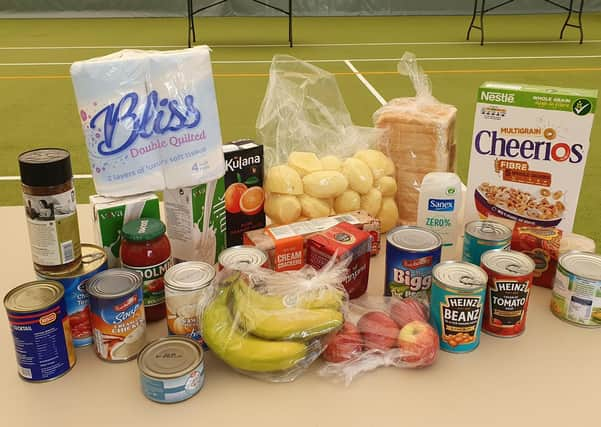‘No evidence’ Covid-19 can be spread by packaging on groceries


Issuing some advice around food shopping and food storage during ongoing coronavirus restrictions, Safefood said that although it remained important to follow good hygiene practices when handling or preparing food, it is “not necessary to sanitize the outside of food packaging”.
Safefood’s chief specialist in microbiology Dr Linda Gordon said: “You should always wash your hands and surfaces often, separate raw meat from other foods, cook to the right temperature and put food in the fridge as soon as you can,
Advertisement
Hide AdAdvertisement
Hide Ad“A question we’re being asked a lot is whether people should wash or disinfect food packaging when they bring it home from shopping.
“The simple answer is no – it’s not necessary to sanitize the outside of food packaging as there is no current evidence that the virus can be transmitted in this way.
“The main risk of transmission is from close contact with infected people. Our advice is to maintain good hygiene habits and to wash your hands regularly and to follow current public health guidelines re social distancing.”
The new advice has been issued after retail data published by Kantar Media this month revealed that more than £800 million was spent on groceries in Northern Ireland in the 12 weeks up to March 22, 2020 – the second highest 12-week sales figure on record and an increase of more than £60 million year-on-year,
Advertisement
Hide AdAdvertisement
Hide AdDr Gordon said that with many people currently cooking much more than they ususally do, Safefood have issued so timely advice on how to deal with leftovers.
“Typically, if there is food left over after a meal, get it into the fridge within two hours – you can help cool it more quickly by dividing it into smaller portions,” she said.
“However, remember that cooked rice is high-risk and must be cooled and put in the fridge within one hour. Any leftovers properly stored should be eaten with three days but if you’re in any doubt, throw it out into your brown bin.”
Dr Gordon went on to say: “As we would normally do, put away shopping as soon as you get it, especially perishable foods which must be stored in the fridge or freezer.
Advertisement
Hide AdAdvertisement
Hide Ad“And always wash your hands after handling any food packaging and before you begin to prepare food. If you’re going food shopping for yourself or others, wash your hands before you go and, as soon as you come home and again after you unpack your shopping.”
Safefood is also advising that the wearing of gloves can provide “a false sense of security,” and added: “They would need to be changed very frequently to be effective. It’s better to wash your hands often and avoid touching your face”.
A reminder has also been issued to follow Foodsafe’s advice on date markings on food labels – that the ‘use-by’ date tells you when the food will become unsafe to eat, and the ‘best before’ date tells you when the quality of the food will begin to deteriorate.
For more information and practical advice about food, food shopping and Covid-19 visit the safefood website at www.safefood.eu